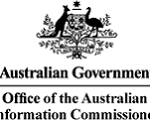Identity Management in New Zealand, CeBIT Australia and the Merry Month of May …
In the world of information governance and a fair go for the individual in dealings with business and government, how has it felt this month?
Weatherwise, for the folk in northern temperate climates, May is the time that the summer clothing begins to break out, people begin to smile and in England, the challenge of scoring 1000 runs in May is in the air. Here in the southern temperate climes that I mostly inhabit, we are moving solidly into winter.
In the world of information governance and a fair go for the individual in dealings with business and government, how has it felt this month? Does it feel like we are North of the Equator or South?
It seems to have been a mixed bag.
The month was heralded by the Managing Identity in New Zealand conference mentioned in my earlier blog, User Centric ID management – Heading for New Zealand, where I mused on the conference and developments in NZ. The conference and the speakers from all over the world exceeded expectations. It was an exciting place to be and gave a lot of reason to be positive that the world would find ways of introducing identity management that made the online world easy to use and a safe place to play. The New Zealand State Services Commission has shown remarkable leadership over a sustained period and during the conference, the Minister launched the new iGovt website to bring their work to the people of New Zealand.
Better than that, the conference is now on your desktop – video and PPT. Like the rest of the conference, the video portal is very approachable and you can watch videos of almost all of the speakers and their PPTs in full. Take your time and indulge in the wonderful presentations from Dick Hardt, Eve Maler or the very reflective and well structured presentation from the head of the SSC Mark Prebble. Or the speech given by Marie Shroff, the Privacy Commissioner of New Zealand that took up half the front page of the Dominion Post the next day as a result, Protect your 'digital shadow'. And don't forget Roger Clarke. I had a lot of fun in the first plenary session, setting the scene for the rest of the conference and later participating in the wrap up lounge interview with TV3 presenter John Campbell et al.
Something of a summer for information privacy.
Later in the month, the eGov forum at CeBIT Australia 2008 also made strong contributions. The Minister for Finance & Deregulation Lindsay Tanner held out the promise of the wisdom of the crowd and proudly reminded us of his early arrival as a blogger. He made it clear that government practice had to change if it was to be part of the world of Government 2.0. We also heard about the government initiatives for more efficient ICT purchasing and the contribution of ICT in responding to climate change. My talk ended up on ZDNet as Privacy rules for a Web 2.0 world.
More warm feelings.
And the National Health and Hospitals Reform Commission has released its Report Beyond the Blame Game on accountability and performance benchmarks for the next Australian Health Care Agreements. The Report identifies 12 challenges and in Challenge 11 the Commission states that "It is imperative to implement a robust and standards-compliant information management system that enables individuals to authorise access to their vital health details across all health care environments including hospitals, GPs and other health professionals, where they choose to do so, in an agreed privacy regime".
Absolutely.
But there was also chilly weather …
Inappropriate surveillance continues and gets caught: Personal data fears after German phone giant says it spied on staff in The Guardian reports on the allegedly unauthorised surveillance by Deutsche Telekom of staff telephone communications, raising fears that innocent customers were also spied upon.
In the middle of the month, The Sydney Morning Herald reports A bumper year for ID fraud: in 2007, Symantec detected "711,912 new threats, a staggering 468% increase on 2006, with 68% of the top 50 malicious codes designed to nab confidential information".
I like to think we will develop safe, useable, valuable ways of safe driving on the information super-highway. But getting there could well require the kind of global effort that it took to turn the motor car around from Ralph Nader's Unsafe at Any Speed to the extremely safe vehicles available today. It took decades, very active government intervention, a great deal of public outcry and a lot of money. But it doesn't have to take so long or be so expensive if there is concerted effort, cooperation and good will.
I'm a warm weather person myself. I remain optimistic.
Malcolm Crompton is the Founder and Lead Privacy Advisor of IIS Partners (IIS), a company that works with public and private sector organisations to build trust with customers through protecting their personal information.














